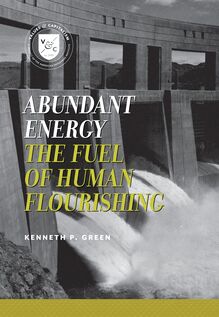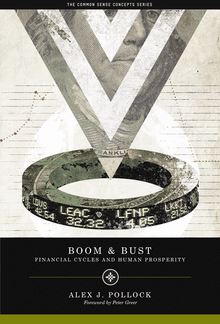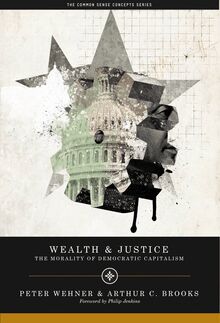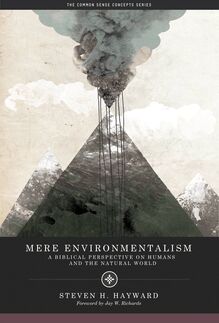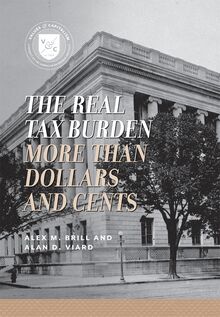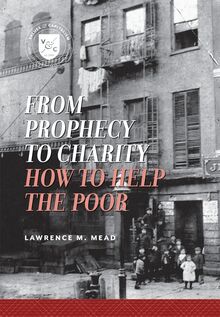-
 Univers
Univers
-
 Ebooks
Ebooks
-
 Livres audio
Livres audio
-
 Presse
Presse
-
 Podcasts
Podcasts
-
 BD
BD
-
 Documents
Documents
-
- Cours
- Révisions
- Ressources pédagogiques
- Sciences de l’éducation
- Manuels scolaires
- Langues
- Travaux de classe
- Annales de BEP
- Etudes supérieures
- Maternelle et primaire
- Fiches de lecture
- Orientation scolaire
- Méthodologie
- Corrigés de devoir
- Annales d’examens et concours
- Annales du bac
- Annales du brevet
- Rapports de stage
La lecture à portée de main
Vous pourrez modifier la taille du texte de cet ouvrage
Découvre YouScribe en t'inscrivant gratuitement
Je m'inscrisDécouvre YouScribe en t'inscrivant gratuitement
Je m'inscrisEn savoir plus
Vous pourrez modifier la taille du texte de cet ouvrage
En savoir plus

Description
Sujets
Informations
| Publié par | AEI Press |
| Date de parution | 16 novembre 2010 |
| Nombre de lectures | 0 |
| EAN13 | 9780844743752 |
| Langue | English |
Informations légales : prix de location à la page 0,0450€. Cette information est donnée uniquement à titre indicatif conformément à la législation en vigueur.
Extrait
Distributed by arrangement with the National Book Network 15200 NBN Way, Blue Ridge Summit, PA 17214 To order call toll free 1-800-462-6420 or 1-717-794-3800.
For all other inquiries please contact AEI Press, 1150 17th Street, N.W., Washington, D.C. 20036 or call 1-800-862-5801.
Copyright © 2011 by the American Enterprise Institute for Public Policy Research, Washington, D.C.
ALL RIGHTS RESERVED.
Cover Design by Amy Duty and Justin Mezzell Interior design by Amy Duty, Justin Mezzell, and Jesse Penico
No part of this publication may be used or reproduced in any manner whatsoever without permission in writing from the American Enterprise Institute except in the case of brief quotations embodied in news articles, critical articles, or reviews. The views expressed in the publications of the American Enterprise Institute are those of the authors and do not necessarily reflect the views of the staff, advisory panels, officers, or trustees of AEI.
LCCN: 2010028984
ISBN-13: 978-0-8447-4374-5
eISBN-13: 978-0-8447-4375-2
FOREWORD
by Jay W. Richards
As a child, I spent many summers at a Christian camp in the mountains of New Mexico. The dense forests of pine and spruce trees, cold mountain streams, verdant meadows festooned with wildflowers, and towering Rocky Mountains helped instill in me a love and awe for God’s creation. It was there, in the thin air seven thousand feet above sea level, that I first saw a hazy white band of light across the night sky. Only later did I learn that I was peering into the star-dense center of our Milky Way galaxy, thousands of light years away. Perhaps as a result of these formative experiences, I have always seen the creation as one of the ways that God reveals himself to us.
The Bible itself says as much. “From the creation of the world,” the Apostle Paul wrote to the church in Rome, “God’s invisible qualities, his eternal power and divine nature, have been clearly seen from the things that have been made” (Romans 1:20). And Psalm 19 says that the “heavens declare the glory of God.” Theologians have described the creation as “general revelation,” whereas Scripture is “special revelation.” Now Jews and Christians obviously hold that special revelation in high regard. But if the creation is God’s general revelation of himself, how could they not treat it, too, with respect?
For those who revere Scripture, then, environmental stewardship should be a no-brainer. Or so it has always seemed to me. So it came as a surprise when I learned in college that some academics, such as Lynn White, have claimed just the opposite. White famously blamed biblical teaching about God and man as the source of “environmental degradation”; and his argument has been repeated ad nauseam in environmental ethics courses ever since.
Other critics have suggested, similarly, that because Christians believe Christ will return and consummate his kingdom at some point, Christians will tend to disregard the environment. For years, the media spread a story about James Watt, Secretary of the Interior from 1981–83, which seemed to illustrate this problem. Watt, an evangelical Christian, was once asked by a congressional committee whether his views on the end times led him to give the environment short shrift. His real but rarely reported answer was unobjectionable, even commonsensical from a Christian point of view: “I do not know how many future generations we can count on before the Lord returns; whatever it is we have to manage with a skill to leave the resources needed for future generations.” This answer did not fit the stereotype, however, so for years, the media often claimed that Watt had said: “After the last tree is felled, Christ will come back.” This is now widely known to be apocryphal, but the fact that the slander against Watt persisted for so long suggests that many people think Christian theology is antagonistic to environmental concerns.
As Steven F. Hayward admirably demonstrates in the following pages, this stereotype is baseless. While those who look to the Bible for guidance do not always fully understand or live up to the standards they profess, the Bible is a rich source for environmental ethics. It also provides a stable foundation for assessing environmental concerns with an open mind while avoiding the extremes so characteristic of public debates over the environment.
The relationship between man and nature is hardly a secondary theme in Scripture. On the very first page, in the book of Genesis, the Bible teaches our responsibility over our natural environment. In the great creation epic of Genesis 1, God creates everything over the course of one divine workweek. On the sixth day, God creates human beings, after he has created the other land animals. But human beings, unlike everything else in creation, are created in God’s “image.” And the image-bearers of God are immediately commanded: “Be fruitful and multiply, and fill the earth and subdue it; have dominion over the fish of the sea and over the birds of the air and over every living thing that moves upon the earth” (Genesis 1:28).
White and others have read this passage superficially, and so confused “dominion” with “domination.” But the text is describing the rule of benevolent stewards who represent the good God to the rest of his creation, not tyrants who rape and pillage the countryside at their discretion. As stewards, we’re responsible for how we treat and use the environment. In fact, though the word “stewardship” is now common parlance in mainstream environmental discussions, the idea is derived from Scripture.
The biblical picture of how human beings relate to the environment defies the extremes so common in the environmental debate. We are part of God’s good creation, as well as its crowning achievement. On the first five days of creation, God looked at what he had done, and pronounced it “good.” On the sixth day, however, “God saw everything that he had made,” says Genesis, “and indeed, it was very good” (Genesis 1:31).
This biblical idea of stewardship differs from the view of those contemporary environmentalists who would prefer as little human contact with the environment as possible. The Bible claims that God intends for us to use and transform the natural world around us for good purposes. Adam and Eve were put in a garden before the fall, and told to “tend and watch over it” (Genesis 2:15). Working and transforming the Earth, then, is part of God’s original blessing, not a curse. The Fall simply turned work into toil, since the ground would resist our efforts to cultivate it.
The biblical perspective is hopeful but realistic. God made the world good, but that world is now fallen. As fallen creatures in a fallen world, we can and do mess things up. We can and do pollute. We can and do act irresponsibly, ignoring the unintended but bad consequences of our actions. Sometimes those actions call for us to change our habits; sometimes they call for a public policy solution.
These insights are easily distilled from the biblical narrative, but only in the last few decades has the “environment” become an abiding ethical and political concern. So it’s no surprise that we bring new questions to the text that early generations did not think to ask. As Hayward notes, this is largely due to our prosperity. Few Westerners now live the life of subsistence farmers. Living in relative prosperity, modern people have come to value a clean environment as a good in itself, as well as part of our own well-being. Contrary to stereotype, the more advanced industrialized nations not only make the environment a priority, they also have a less negative impact on the environment than developing nations in the early stages of industrialization. These facts suggest that good economic policy that leads to prosperity is, in the long run, also good environmental policy.
DISCERNMENT
Jews and Christians agree with environmentalists that we should care for our natural environment. Unfortunately, the environmental movement is diverse, and includes some ideas that contradict the biblical worldview. For instance, pantheism and nature worship are not uncommon in environmental circles. And many environmentalists have an unbiblical view of human beings. Some reduce man to a mere animal who is not different, in kind, from the chimp in the jungle. Others depict human beings not as creative image bearers of God, but as mere consumers of resources, like locusts that move from site to site, consuming everything in their path.
A few years ago, one prominent scientist and environmentalist wrote to me about a subject of mutual interest. The letter was generally cordial, but toward the end, it took a dark turn. This scientist said he disagreed with me that humans were meant to be here. He went on:
Still, adding over seventy million new humans to the planet each year, the future looks pretty bleak to me. Surely, the Black Death was one of the best things that ever happened to Europe: elevating the worth of human labor, reducing environmental degradation, and, rather promptly, producing the Renaissance. From where I sit, Planet Earth could use another major human pandemic, and pronto!
Not all environmentalists would agree, of course, but this antihuman sentiment is not quite a fringe opinion.
Many Christians interested in environmental stewardship are aware of these problems in the wider movement. They are also aware that many conservative religious believers may care about the environment but oppose “environmentalism,” which they identify with apocalyptic scare-tactics in service of political power.
So, to avoid the taint of pantheism, misanthropy, and left-wing politics, many Christian environmentalists now speak of “creation care.” This is a rhetorical improvement, since it is explicitly theological. The Bible, after all, speaks of creation rather than of “nature” or the “environment.” Still, creation care, if it is to be more than an appealing
-
 Univers
Univers
-
 Ebooks
Ebooks
-
 Livres audio
Livres audio
-
 Presse
Presse
-
 Podcasts
Podcasts
-
 BD
BD
-
 Documents
Documents
-
Jeunesse
-
Littérature
-
Ressources professionnelles
-
Santé et bien-être
-
Savoirs
-
Education
-
Loisirs et hobbies
-
Art, musique et cinéma
-
Actualité et débat de société
-
Jeunesse
-
Littérature
-
Ressources professionnelles
-
Santé et bien-être
-
Savoirs
-
Education
-
Loisirs et hobbies
-
Art, musique et cinéma
-
Actualité et débat de société
-
Actualités
-
Lifestyle
-
Presse jeunesse
-
Presse professionnelle
-
Pratique
-
Presse sportive
-
Presse internationale
-
Culture & Médias
-
Action et Aventures
-
Science-fiction et Fantasy
-
Société
-
Jeunesse
-
Littérature
-
Ressources professionnelles
-
Santé et bien-être
-
Savoirs
-
Education
-
Loisirs et hobbies
-
Art, musique et cinéma
-
Actualité et débat de société
- Cours
- Révisions
- Ressources pédagogiques
- Sciences de l’éducation
- Manuels scolaires
- Langues
- Travaux de classe
- Annales de BEP
- Etudes supérieures
- Maternelle et primaire
- Fiches de lecture
- Orientation scolaire
- Méthodologie
- Corrigés de devoir
- Annales d’examens et concours
- Annales du bac
- Annales du brevet
- Rapports de stage
